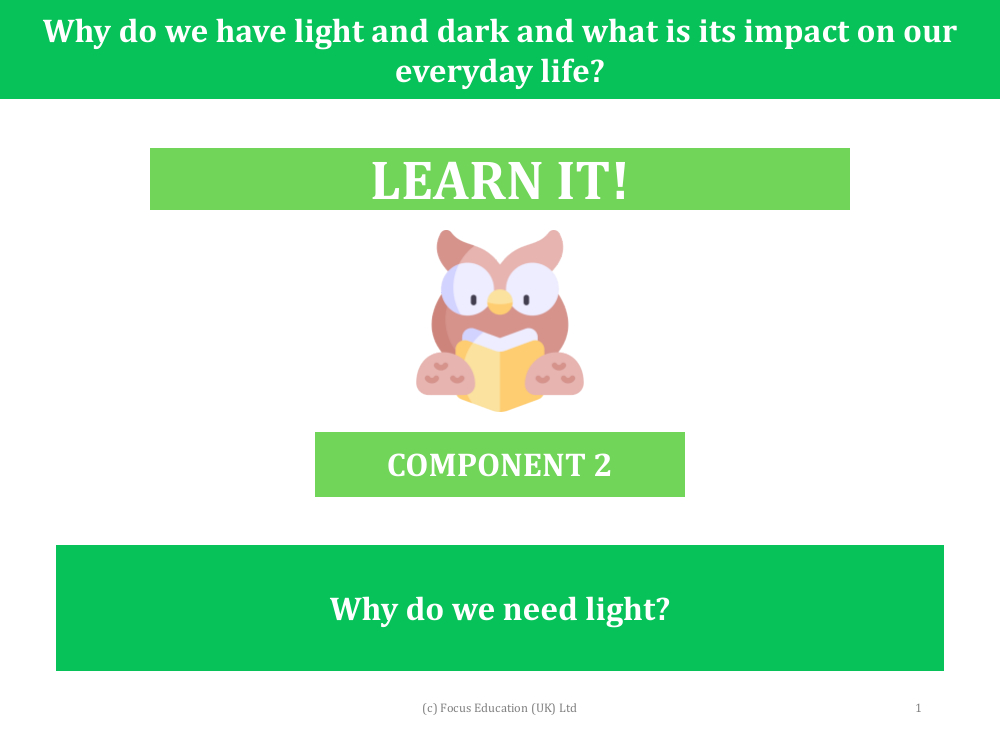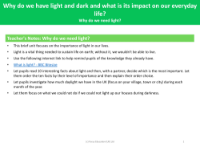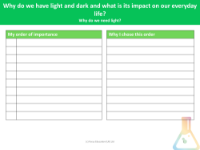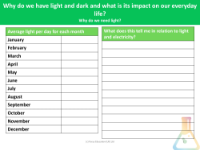Why do we need light? - Presentation

Science Resource Description
The significance of light in our daily lives is the focus of an educational unit that delves into questions about the existence of light and darkness and their effects on our routines. Light is an essential element for sustaining life on Earth, and its absence would dramatically alter our existence. Teachers are encouraged to utilise online resources, such as BBC Bitesize, to refresh students' understanding of light. Students are tasked with reading ten intriguing facts about light and discussing with a partner which fact they consider the most important. They are then instructed to rank these facts in order of significance, providing reasons for their prioritisation. The investigation extends to examining the varying amounts of daylight available throughout the year in the UK, with a particular emphasis on the students' own locality. This leads to a discussion on the limitations we would face if we were unable to illuminate our homes during the dark hours.
The presentation offers a list of interesting facts about light, including its necessity for human vision, its wave-like travel, and its speed of 300,000 kilometres per second. It explains the process of photosynthesis, where plants convert light energy from the Sun into food, and highlights that different species perceive the light spectrum in diverse ways. The composition of white light as a mixture of all colours is noted, as well as the practical applications of light in technology and science. Historical references are made to the development of electric light, acknowledging both Humphry Davy's early invention and Thomas Edison's patented lightbulb design. Furthermore, students are encouraged to consider the impact of light on electricity usage by examining average daylight hours for each month and to list ten activities that would be impossible without artificial light at night. This exercise is aimed at summarising the critical role that light plays in our lives.





